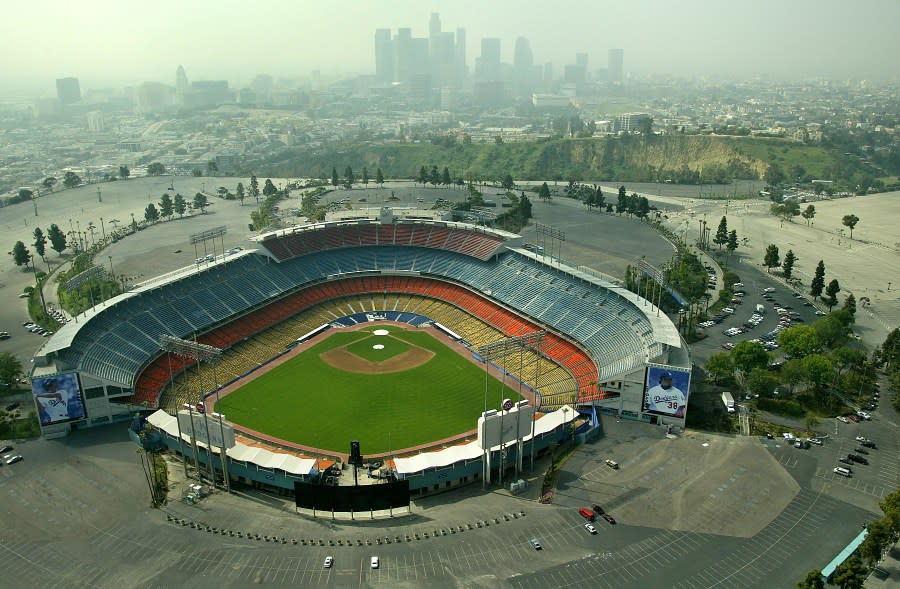California bill could provide reparations for families displaced from site of Dodger Stadium

A bill introduced in the California Legislature seeks to provide reparations for families of people displaced from their Los Angeles homes during the 1950s through 1960s on land that eventually became the home of Dodger Stadium.
The bill, formally known as The Chavez Ravine Accountability Act or AB 1950, would require the city of Los Angeles to form a nine-member task force to provide compensation to the displaced or their descendants.
Assemblywoman Wendy Carrillo (D- Los Angeles) introduced the bill after years of calls from organizers who have asked for reparations for land taken from families by the city.
The land, located between the San Gabriel Mountains and downtown Los Angeles, is widely known today as Chavez Ravine, but it was once the home to the Palo Verde, La Loma, and Bishop communities.
About 1,800 families, many of whom were Mexican American, lived there but were displaced in the 1950s after the city said the land was needed to build affordable housing, known then as the Elysian Park project.
“The city promised displaced families that they would have the opportunity to return to new homes in the newly redeveloped housing project,” the bill stated.
“By 1952, the community was a ghost town, and in the following years, the land would be sold below the market value or auctioned off against the will of the landowners. Churches, schools, and cemeteries were bulldozed and buried.
The promises of new permanent housing would be abandoned, and land titles would never be returned to the original owners. By 1958, the Elysian Park Heights housing project had unraveled, and the city conveyed the Chavez Ravine land to a private entity for an insignificant amount considering the land’s value. The private entity built a sports stadium and parking lot on the site.”
The housing project never materialized, and the Dodgers later bought the land when they moved to Los Angeles from Brooklyn in 1958.
KTLA reached out to Mayor Karen Bass but didn’t hear back in time for publication. The L.A. Dodgers didn’t provide KTLA with a statement.
The bill proposes many forms of reparations, including fair-market-value compensation or conveying city-owned land for “housing, use, and enjoyment equal to the square footage area of land acquired by the city.”
The bill stated that the compensation, however it materializes, would be exempt from taxation and the real property tax.
California bill would change the way minors consume social media
The bill also calls for the city to construct a permanent memorial that recognizes the displaced residents and landowners of the Chavez Ravine community, along with a searchable database with information related to the ravine.
If the bill is passed, the database would have to be ready by Jan. 1, 2027 and be needed before the compensation process could begin.
“AB 1950, the Chavez Ravine Accountability Act aims to correct an injustice that displaced families and has lingered in the shadows of Los Angeles Eastside history for far too long,” Carrillo said in a statement.
“For generations, Chavez Ravine stood as a beacon of hope and resilience, embodying the dreams and aspirations of families who built their lives within its embrace. With this legislation, we are addressing the past, giving voice to this injustice, acknowledging the pain of those displaced, offering reparative measures, and ensuring that we honor and remember the legacy of the Chavez Ravine community.”
The legislation would need to pass the Assembly and the State Senate before it makes its way to Gov. Gavin Newsom’s desk.
For the latest news, weather, sports, and streaming video, head to KTLA.

